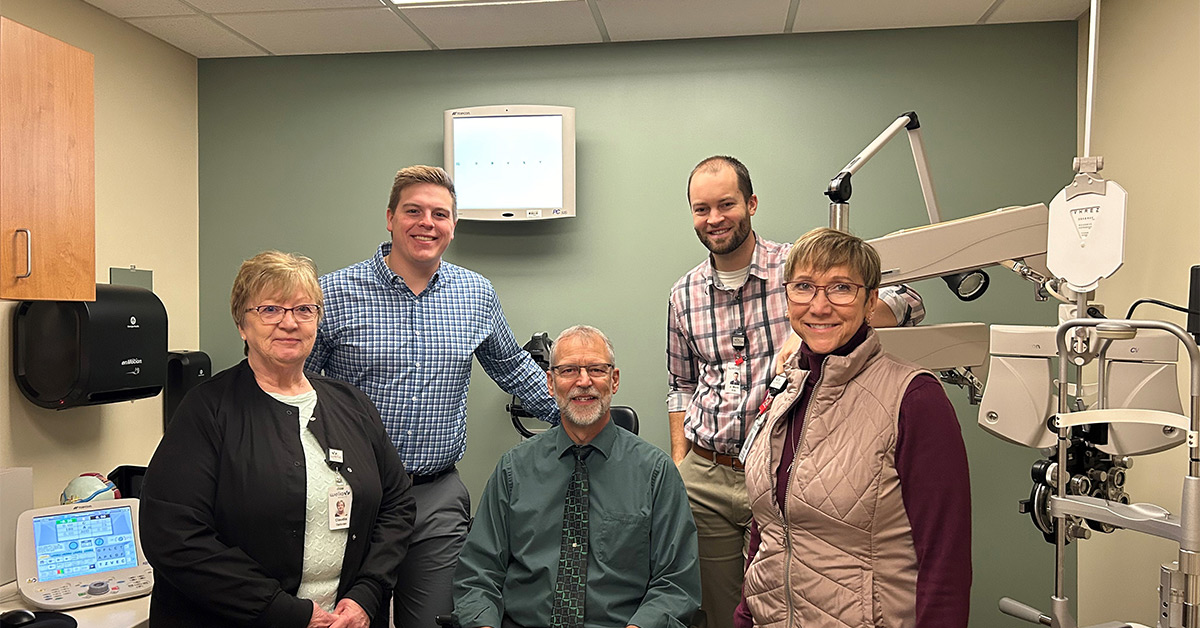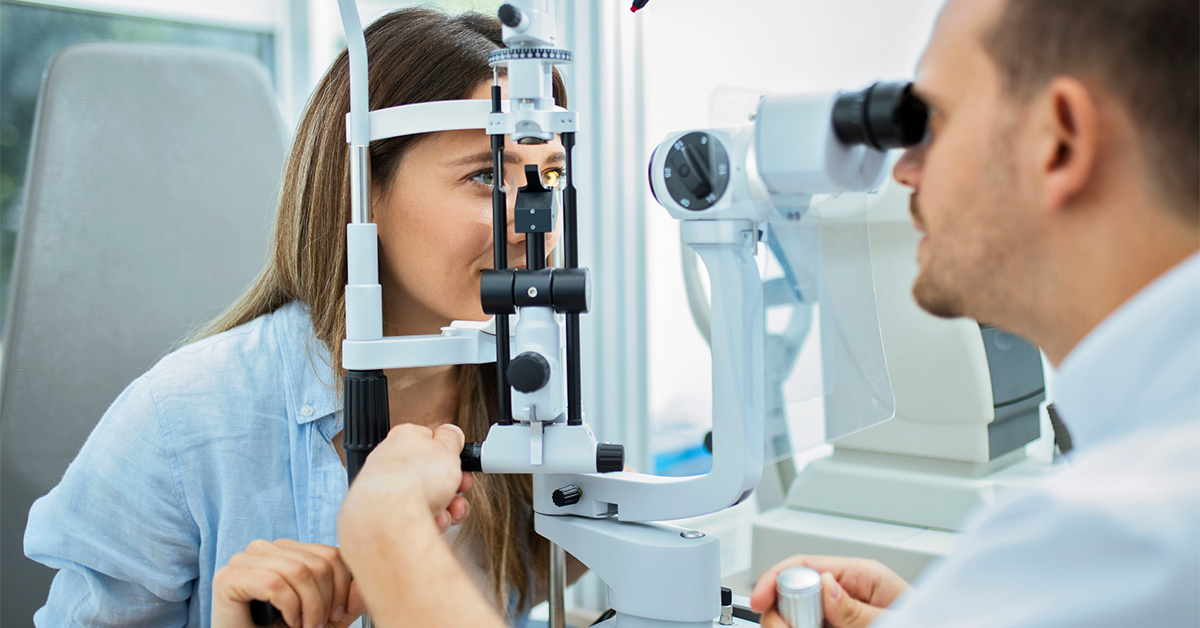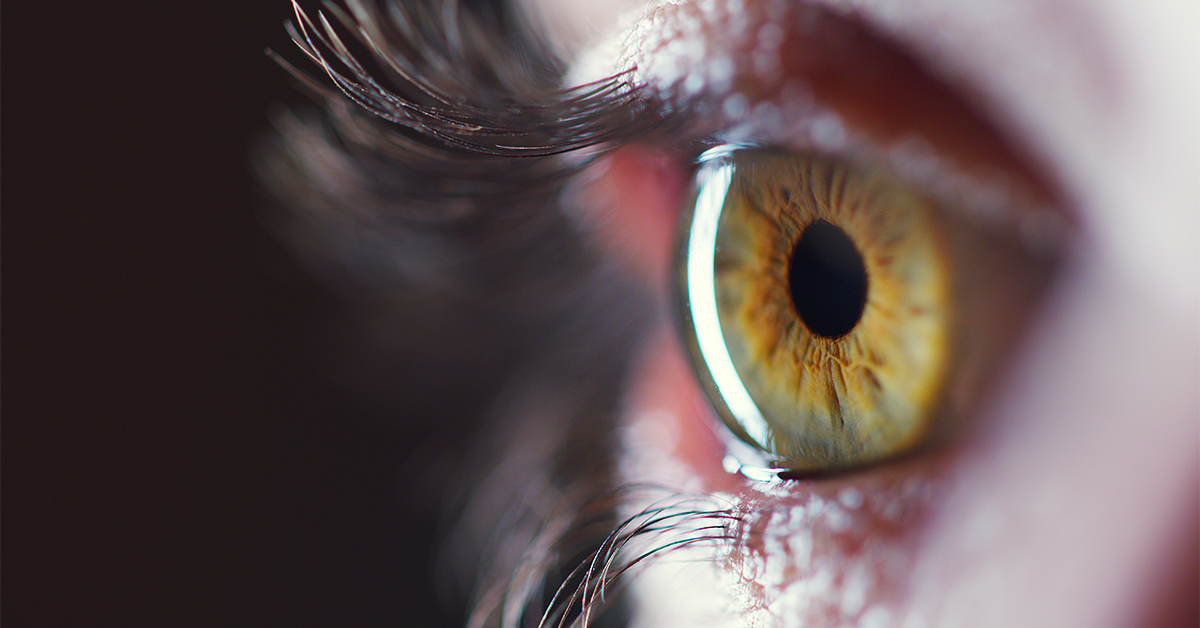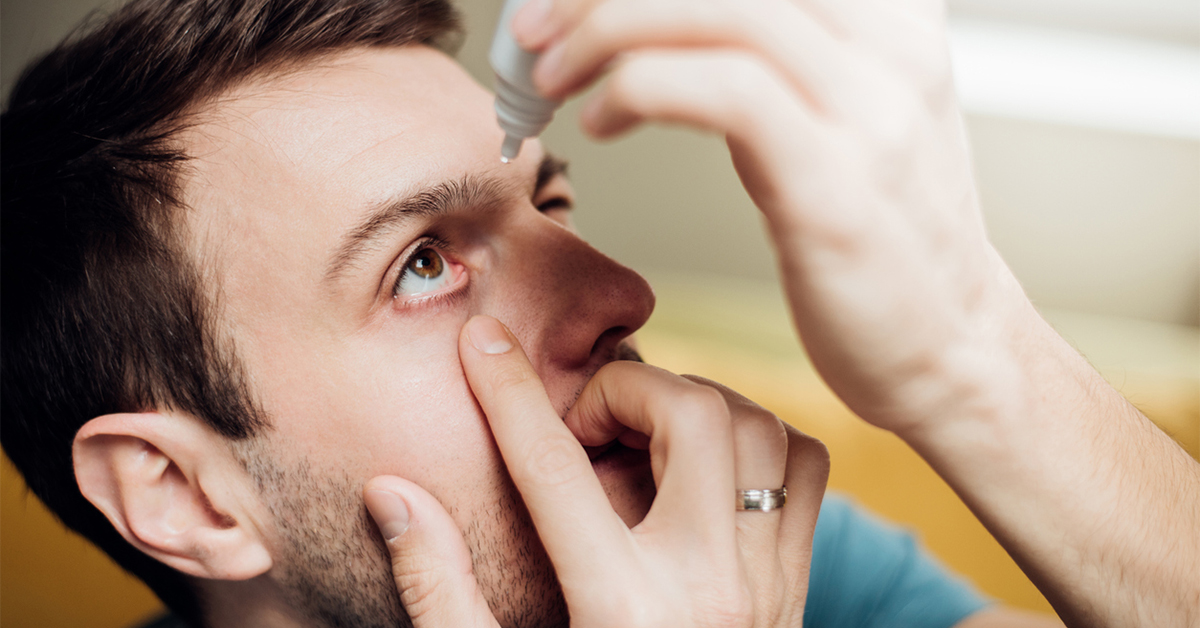Living with diabetes can feel like a full-time job—medications, meal plans, doctor appointments. But one thing many people overlook? Their eyesight. Vision loss is one of the most common, yet preventable, complications of diabetes.
How diabetes affects your eyes
High blood sugar can damage tiny blood vessels throughout your body—including those in your eyes. Over time, this damage can lead to a group of conditions collectively known as diabetic eye disease, which can seriously threaten your vision if left untreated.
Left unchecked, diabetic eye disease can progress silently and lead to permanent vision loss—but early detection and good management can make all the difference.
Four common diabetic eye diseases
1. Diabetic Retinopathy
Damage to the retina from high blood sugar.
Diabetic retinopathy is a serious eye condition caused by high blood sugar levels. Over time, elevated blood sugar can damage the tiny blood vessels in the retina—the light-sensitive tissue at the back of the eye. This damage can lead to vision loss or even blindness.
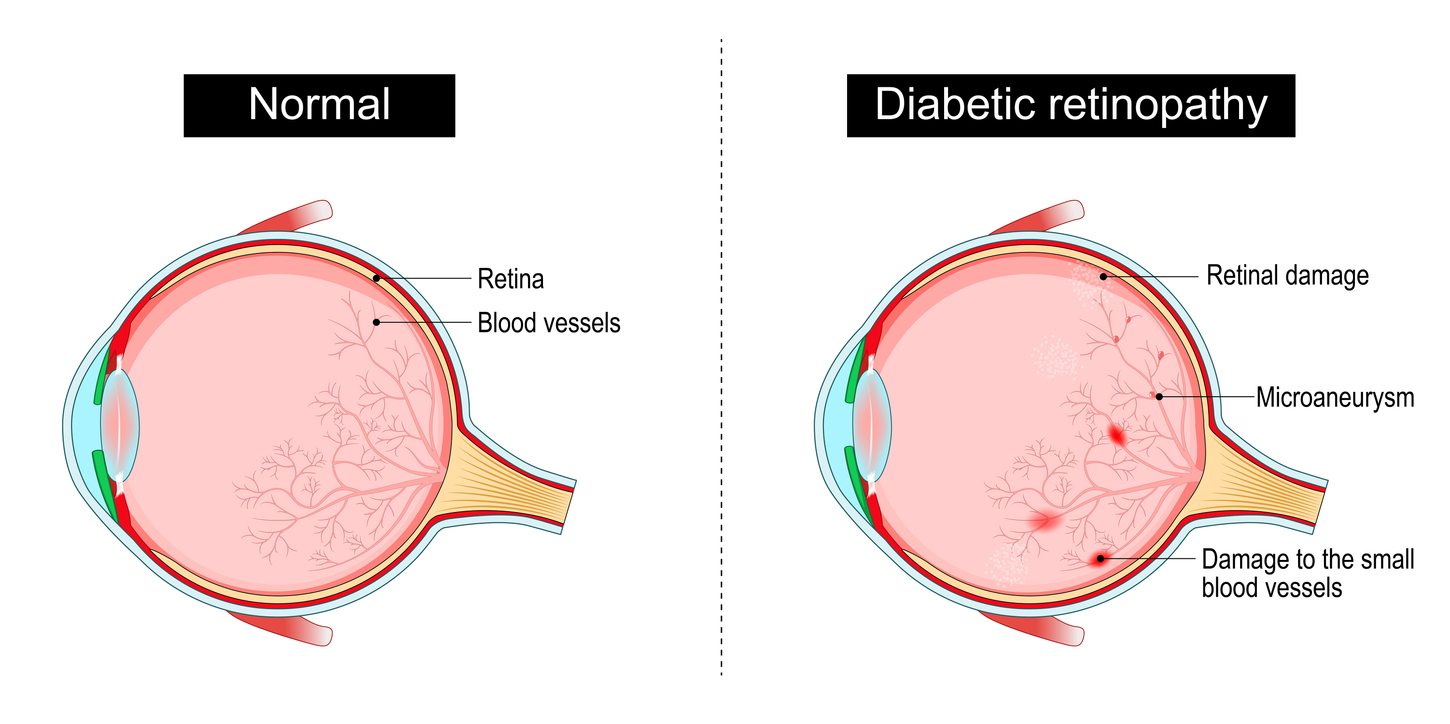
Diabetic retinopathy affects about one in three people with diabetes and often develops without early symptoms, which makes regular eye exams especially important. The best defense—keep your blood sugar consistently in a healthy range. Watch this short video from the National Institute of Health.
2. Diabetic Macular Edema
Fluid build-up causes blurry vision.
Diabetic Macular Edema (DME) is a complication of diabetic retinopathy. It occurs when fluid leaks into the macula—the part of the retina responsible for sharp, central vision.
DME affects about 1 in 15 people with diabetes and is the leading cause of vision loss among them.
Symptoms include:
- Blurry or wavy vision
- Difficulty reading
- Trouble recognizing faces
3. Cataracts
Cloudy vision comes earlier for people with diabetes.
Cataracts cause the lens of the eye to become cloudy, making it harder to see clearly. In people with diabetes, high blood sugar can cause deposits to build up in the lens.
As a result, cataracts tend to appear earlier in life and progress more quickly.
Common symptoms:
- Blurry vision
- Glare or halos around lights
- Difficulty seeing at night
People with diabetes are 60% more likely to develop cataracts than those without.
4. Glaucoma
Increased eye pressure can steal sight silently.
Glaucoma develops when pressure builds up inside the eye and damages the optic nerve, which carries images to your brain. Over time, it can cause gradual vision loss—often starting with your peripheral vision—and may go unnoticed until it’s advanced.
People with diabetes are nearly twice as likely to develop glaucoma. Like many diabetic eye conditions, it often has no symptoms in the early stages, which makes it especially dangerous.
That’s why routine eye exams are essential—even if your vision feels normal.
Why regular eye exams matter
The tricky thing about diabetic eye problems is that they often don’t have any noticeable symptoms in the early stages. That’s why comprehensive, dilated eye exams are essential—even if your vision seems fine.
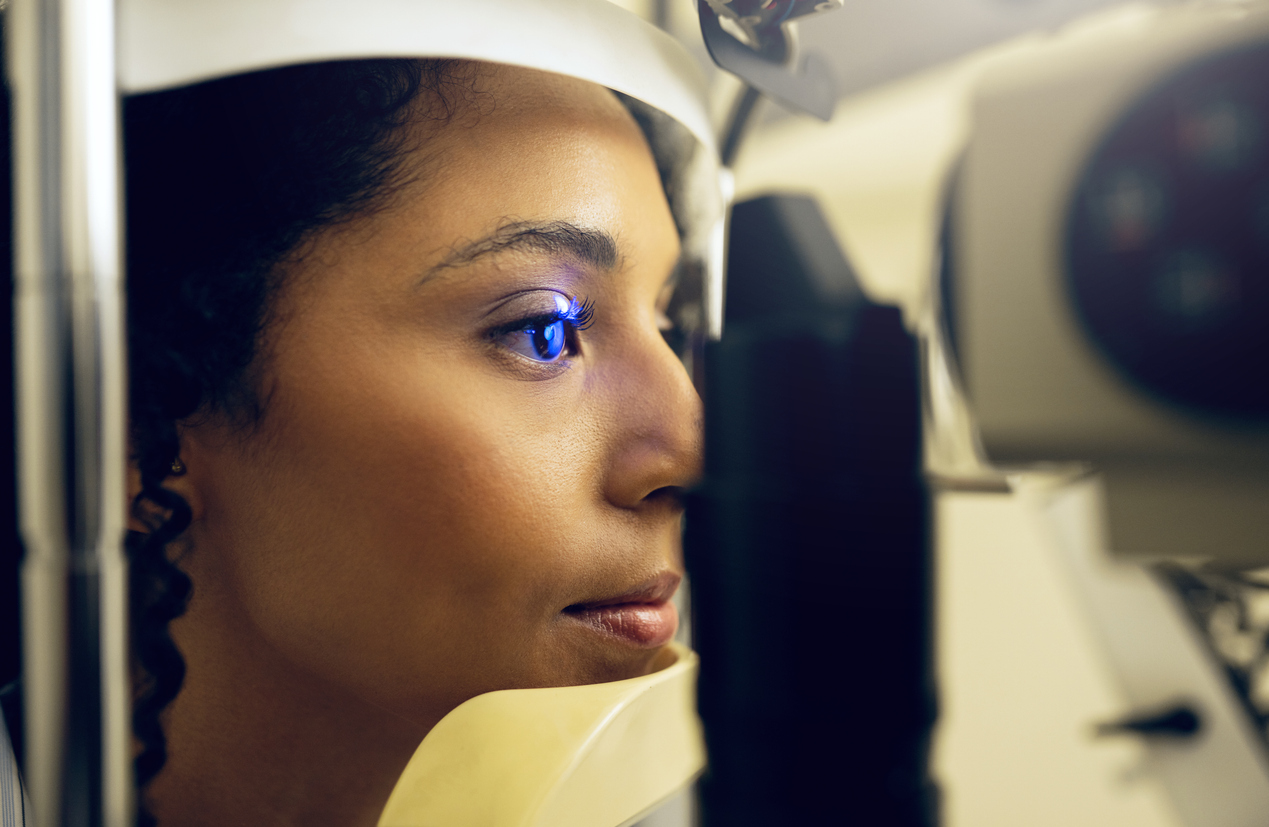
The American Diabetes Association recommends regular eye exams for people with diabetes.
- Type 1 diabetes: Within 5 years of diagnosis
- Type 2 diabetes: As soon as you’re diagnosed
- After that, once a year or as recommended by your eye doctor
What to expect during a diabetes eye exam
During your exam, your eye doctor will:
- Dilate your pupils to examine your retina
- Look for signs of retinopathy, DME, cataracts, and glaucoma
- Measure eye pressure
- Test your vision and visual field
The National Institutes of Health outlines 10 key elements of a diabetes-related eye exam.
Everyday tips to protect your vision
In addition to regular eye exams, you can take these steps to keep your eyes healthy:
- Keep your blood sugar within target range.
- Control your blood pressure and cholesterol.
- Eat a balanced diet and stay active.
- Don’t smoke—it raises your risk of eye disease.
- Notify your eye doctor if you notice any changes in vision, such as blurriness, dark spots, or floaters.
Get help managing your diabetes
- Welia Health’s Diabetes Educators will work with you one-on-one to establish individual goals to improve your health and reduce your risk of developing diabetes-related complications. Call 320.679.1212 to learn more or schedule an appointment.
- Participate in our Diabetes Support Group led by knowledgeable healthcare professionals covering topics such as nutrition, exercise, medication management, and emotional well-being. Mark your calendars for May 28, 2025, in Pine City and June 5, 2025, in Mora, where the discussion will focus on eye health.
Book your diabetes eye exam
At Welia Health, we’re committed to helping you protect your sight. Our experienced eye care team works closely with patients managing diabetes to detect early signs of eye disease and provide the care you need.
Don’t wait until symptoms appear—your eyes deserve proactive care. Call Welia Health Eye Care Center at 320.679.2020 and book your diabetic eye exam today.
We’re here to help you see clearly—today and for years to come.







